2024
Host: Prof. Dr. Tobias Schlicht
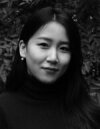 Qiuran Wang is a psychologist from Padova who has been working on cognition in plants. Qiuran's research focuses on the study of plant cognition by examining the decision-making behavior and cognitive models of plants through 3D trajectory analysis, kinematic analysis, and machine learning approaches. She is now visiting RUB with the help of a Think@RUHR postdoc scholarship and working closely with Tobias Schlicht's team on issues in Basal Cognition. In particular, she is conducting an experiment on slime mould.
Qiuran Wang is a psychologist from Padova who has been working on cognition in plants. Qiuran's research focuses on the study of plant cognition by examining the decision-making behavior and cognitive models of plants through 3D trajectory analysis, kinematic analysis, and machine learning approaches. She is now visiting RUB with the help of a Think@RUHR postdoc scholarship and working closely with Tobias Schlicht's team on issues in Basal Cognition. In particular, she is conducting an experiment on slime mould.
2022
Host: Prof. Dr. Markus Werning
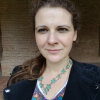 Maria Spychalka is a postdoc at the Language in Interaction Consortium, Neurobiology of Language Department, Max Planck Institute for Psycholinguistics, Nijmegen. Her research lies at the interface between philosophy of language, experimental semantics & pragmatics, and psycholinguistics. She is particularly interested in pragmatic aspects of communication, communication in contexts with partial information, multi-agent scenarios, communication with AI agents, as well as interface between pragmatics and reasoning in natural language. Her experiments primarily involve EEG, but she also uses a combination of Virtual Reality and EEG.
Maria Spychalka is a postdoc at the Language in Interaction Consortium, Neurobiology of Language Department, Max Planck Institute for Psycholinguistics, Nijmegen. Her research lies at the interface between philosophy of language, experimental semantics & pragmatics, and psycholinguistics. She is particularly interested in pragmatic aspects of communication, communication in contexts with partial information, multi-agent scenarios, communication with AI agents, as well as interface between pragmatics and reasoning in natural language. Her experiments primarily involve EEG, but she also uses a combination of Virtual Reality and EEG.
2022
Host: Prof. Dr. Markus Werning
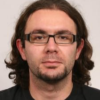 Nikola Andonovski is a Marie Skłodowska-Curie Fellow at the Centre for Philosophy of Memory in Grenoble. His project, A Theory of Memory Causation (2022-2024), examines causation in episodic memory, aiming to clarify what it means to say that memories are caused by past experiences and to establish whether such causation is necessary. His research lies at the intersection of philosophy and the sciences of memory. He is also interested in the causal and representational structure of episodic memories, the nature of consolidation, and the relationship between memory and reasoning.
Nikola Andonovski is a Marie Skłodowska-Curie Fellow at the Centre for Philosophy of Memory in Grenoble. His project, A Theory of Memory Causation (2022-2024), examines causation in episodic memory, aiming to clarify what it means to say that memories are caused by past experiences and to establish whether such causation is necessary. His research lies at the intersection of philosophy and the sciences of memory. He is also interested in the causal and representational structure of episodic memories, the nature of consolidation, and the relationship between memory and reasoning.
2022
Host: Prof. Dr. Markus Werning
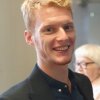 James Openshaw is a Marie Skłodowska-Curie Fellow at the Centre for Philosophy of Memory in Grenoble, where he leads the EU-funded Remembering Objects (2021–24) project. Starting in November, he'll also be a postdoctoral researcher on the FOR 2812 'Constructing Scenarios of the Past' unit at the Ruhr-Universität Bochum. His principal interests are in the philosophy of mind, his areas of interest also include epistemology, the philosophy of language, and metaphysics. His work primarily explores interactions between singular thought (or reference), memory, and perceptual experience.
James Openshaw is a Marie Skłodowska-Curie Fellow at the Centre for Philosophy of Memory in Grenoble, where he leads the EU-funded Remembering Objects (2021–24) project. Starting in November, he'll also be a postdoctoral researcher on the FOR 2812 'Constructing Scenarios of the Past' unit at the Ruhr-Universität Bochum. His principal interests are in the philosophy of mind, his areas of interest also include epistemology, the philosophy of language, and metaphysics. His work primarily explores interactions between singular thought (or reference), memory, and perceptual experience.
2022
Host: Prof. Dr. Barbara Sattler
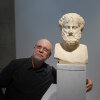 Henry Mendell is professor emeritus at the California State University Los Angeles (CSLA). His area of specalization lies in ancient Greek philosophy (especially Aristotle and Plato), ancient Greek mathematics and ancient astronomy (especially Eudoxus). These focus on the relation between philosophical issues in ancient treatments of scientific problems and how ancient philosophers responded to those issues. His current projects involve Aristotle's Physics, Aristotelian logic, decision theorems in Aristotle, conceptions of number in the 4th and 3rd century B.C.E, treatments of quantitative relations in Greek mathematics, infinitary arguments in Greek mathematics, the relation between first principles in Aristotle and in Greek mathematics, sources for Eudoxus, 4th cent. B.C.E. conceptions of astronomy, and Plato's analogy of the Divided Line, and his Phaedo.
Henry Mendell is professor emeritus at the California State University Los Angeles (CSLA). His area of specalization lies in ancient Greek philosophy (especially Aristotle and Plato), ancient Greek mathematics and ancient astronomy (especially Eudoxus). These focus on the relation between philosophical issues in ancient treatments of scientific problems and how ancient philosophers responded to those issues. His current projects involve Aristotle's Physics, Aristotelian logic, decision theorems in Aristotle, conceptions of number in the 4th and 3rd century B.C.E, treatments of quantitative relations in Greek mathematics, infinitary arguments in Greek mathematics, the relation between first principles in Aristotle and in Greek mathematics, sources for Eudoxus, 4th cent. B.C.E. conceptions of astronomy, and Plato's analogy of the Divided Line, and his Phaedo.
2022
Host: Prof. Dr. Barbara Sattler
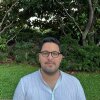 Diego Garcia Rincon is a PhD student at the Ludwig-Maximilians University Munich (LMU). His areas of interest are within Ancient Philosophy, in particular, he focuses on Metaphysics and Epistemology, History of Western Philosophy, Plato, Aristotle and Classical Greek Philosophy. His PhD project is called "The philosophy of steering regularity. Cosmology and politics in Plato and Heraclitus".
Diego Garcia Rincon is a PhD student at the Ludwig-Maximilians University Munich (LMU). His areas of interest are within Ancient Philosophy, in particular, he focuses on Metaphysics and Epistemology, History of Western Philosophy, Plato, Aristotle and Classical Greek Philosophy. His PhD project is called "The philosophy of steering regularity. Cosmology and politics in Plato and Heraclitus".
2022
Host: Prof. Dr. Albert Newen
 Kristin Andrews is York Research Chair in Animal Minds and Professor of Philosophy at York University (Toronto), where she also helps coordinate the Cognitive Science program and the Greater Toronto Area Animal Cognition Discussion Group. Kristin is on the board of directors of the Borneo Orangutan Society Canada, a member of the College of the Royal Society of Canada, and the author of several books on social minds, animal minds, and ethics such as "The Routledge Handbook of Philosophy of Animal Minds" and "The Animal Mind. An Introduction to the Philosophy of Animal Cognition.".
Kristin Andrews is York Research Chair in Animal Minds and Professor of Philosophy at York University (Toronto), where she also helps coordinate the Cognitive Science program and the Greater Toronto Area Animal Cognition Discussion Group. Kristin is on the board of directors of the Borneo Orangutan Society Canada, a member of the College of the Royal Society of Canada, and the author of several books on social minds, animal minds, and ethics such as "The Routledge Handbook of Philosophy of Animal Minds" and "The Animal Mind. An Introduction to the Philosophy of Animal Cognition.".
2022
Host: Prof. Dr. Albert Newen
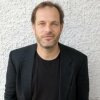 Somogy Varga is Professor of Philosophy at Aarhus University, Denmark. His area of expertise lies within the Philosophy of Psychiatry, Mind, Cognitive Science and Moral Psychology. He previously worked at the University of Memphis (2012–2019), the Institute of Cognitive Science at the University of Osnabrück (2009–2012), and the Institute of Social Research at Goethe University Frankfurt (2007–2009). He is the author of the books "Authenticity as an Ethical Ideal", "Naturalism, Interpretation, and Mental Disorder" and "Scaffolded Minds".
Somogy Varga is Professor of Philosophy at Aarhus University, Denmark. His area of expertise lies within the Philosophy of Psychiatry, Mind, Cognitive Science and Moral Psychology. He previously worked at the University of Memphis (2012–2019), the Institute of Cognitive Science at the University of Osnabrück (2009–2012), and the Institute of Social Research at Goethe University Frankfurt (2007–2009). He is the author of the books "Authenticity as an Ethical Ideal", "Naturalism, Interpretation, and Mental Disorder" and "Scaffolded Minds".
2022
Host: Prof. Dr. Tobias Schlicht
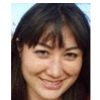
Suilin Lavelle is a Senior Lecturer at the University of Edinburgh, and a Humboldt Experienced Researcher at Ruhr Universität, Bochum. Her area of expertise is social cognition, with a particular focus on mindreading. She is currently writing a series of papers on the replication crisis in psychology, arguing that it should not be seen as a ‘crisis’ but rather as an opportunity to better understand the interplay between theory, data and observation. She is the author of the book "The Social Mind: A Philosophical Introduction".
2022
Host: Prof. Dr. Tobias Schlicht
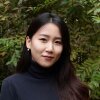
Qiuran Wang is a Ph.D. candidate in Psychological Sciences and a researcher at the Neuroscience of Movement Laboratory (NeMo) at the University of Padova, Italy.
Qiuran's research focuses on the study of plant cognition by examining the decision-making behavior and cognitive models of plants through 3D trajectory analysis, kinematic analysis, and machine learning approaches.
2019
Host: Prof. Dr. Albert Newen
 Felipe Carvalho is a PhD candidate from the Jean Nicod Institute in Paris, working under the supervision of François Recanati. His main interests lie in the psychology of object perception and the epistemology of perceptual demonstrative reference, and how empirical findings in the former domain guide and constrain philosophical explanations in the latter. He is the recipient of a CIERA scholarship (Centre Interdisciplinaire d'études e de recherches sur l'Allemagne) for a 6-month visiting period at Ruhr-Universität Bochum, under the supervision of Prof. Albert Newen.
Felipe Carvalho is a PhD candidate from the Jean Nicod Institute in Paris, working under the supervision of François Recanati. His main interests lie in the psychology of object perception and the epistemology of perceptual demonstrative reference, and how empirical findings in the former domain guide and constrain philosophical explanations in the latter. He is the recipient of a CIERA scholarship (Centre Interdisciplinaire d'études e de recherches sur l'Allemagne) for a 6-month visiting period at Ruhr-Universität Bochum, under the supervision of Prof. Albert Newen.
2018-2019
Host: Jun. Prof. Peter Brössel
 James Pryor is a Prof.ssor of Philosophy at New York University. He obtained his PhD in philosophy in 1997 from Princeton University, and has also taught at Harvard and Princeton. He works primarily in epistemology and formal semantics, with a special interest in issues at the intersection of philosophy, linguistics, and computer science. His work and teaching also often take him into philosophy of mind, metaphysics, logic, ethics, and the philosophy of action. His recent publications in epistemology include "The Merits of Incoherence" (Analytic Philosophy, 2018) and "Problems for Credulism" (in Chris Tucker, ed., Seemings and Justification, Oxford, 2013); In philosophy of language and mind they include "De Jure Codesignation" (in Bob Hale, Alex Miller, and Crispin Wright, eds., A Companion to the Philosophy of Language, 2nd ed., Blackwell, 2017) and "Mental Graphs" (Review of Philosophy and Psychology, 2016). From June 2018 until August 2019 he'll be on sabbatical and working on topics related to perception with the Emmy Noether Research Group From Perception To Belief and Back Again headed by Peter Brössel; and also on his other projects in epistemology and semantics.
James Pryor is a Prof.ssor of Philosophy at New York University. He obtained his PhD in philosophy in 1997 from Princeton University, and has also taught at Harvard and Princeton. He works primarily in epistemology and formal semantics, with a special interest in issues at the intersection of philosophy, linguistics, and computer science. His work and teaching also often take him into philosophy of mind, metaphysics, logic, ethics, and the philosophy of action. His recent publications in epistemology include "The Merits of Incoherence" (Analytic Philosophy, 2018) and "Problems for Credulism" (in Chris Tucker, ed., Seemings and Justification, Oxford, 2013); In philosophy of language and mind they include "De Jure Codesignation" (in Bob Hale, Alex Miller, and Crispin Wright, eds., A Companion to the Philosophy of Language, 2nd ed., Blackwell, 2017) and "Mental Graphs" (Review of Philosophy and Psychology, 2016). From June 2018 until August 2019 he'll be on sabbatical and working on topics related to perception with the Emmy Noether Research Group From Perception To Belief and Back Again headed by Peter Brössel; and also on his other projects in epistemology and semantics.
June 2018
Host: Prof. Dr. Tobias Schlicht
 Joe Dewhurst obtained his PhD in philosophy in 2017 at the University of Edinburgh, where his doctoral research looked at the relationship betwen common-sense intuitions and scientific theories in contemporary cognitive science. He is currently a teaching assistant at the same institution, but from October 2018 he will be joining the Munich Center for Mathematical Philosophy as a postdoctoral researcher. His project there will be focused primarily on the nature of mechanistic explanations in biology and cognitive science, but he also works on the history of cognitive science and foundational issues in philosophy of computation. His key publications include "Individuation Without Representation" (2018, British Journal for the Philosophy of Science), "Enactive Autonomy in Computational Systems" (2018, Synthese), and "Curtain Call at the Cartesian Theatre" (2015, Journal of Consciousness Studies). During June 2018 he will be working on topics relating to folk psychology and situated cognition with the Situated Cognition Research Group headed by Tobias Schlicht.
Joe Dewhurst obtained his PhD in philosophy in 2017 at the University of Edinburgh, where his doctoral research looked at the relationship betwen common-sense intuitions and scientific theories in contemporary cognitive science. He is currently a teaching assistant at the same institution, but from October 2018 he will be joining the Munich Center for Mathematical Philosophy as a postdoctoral researcher. His project there will be focused primarily on the nature of mechanistic explanations in biology and cognitive science, but he also works on the history of cognitive science and foundational issues in philosophy of computation. His key publications include "Individuation Without Representation" (2018, British Journal for the Philosophy of Science), "Enactive Autonomy in Computational Systems" (2018, Synthese), and "Curtain Call at the Cartesian Theatre" (2015, Journal of Consciousness Studies). During June 2018 he will be working on topics relating to folk psychology and situated cognition with the Situated Cognition Research Group headed by Tobias Schlicht.
Host: Jun. Prof. Peter Brössel
 Harmen Ghijsen is a philosopher working within the Cognition, Culture, and Language research group at Radboud University. He obtained his PhD in philosophy in 2014 at KU Leuven and is currently working on the NWO-funded (Netherlands Organisation for Scientific Research) project “Should we trust our own eyes? Challenges from cognitive penetration and implicit bias”. His area of expertise is philosophy of perception, and he has worked and published on topics related to epistemology, philosophy of mind and philosophy of science. His key publications include his monograph “The Puzzle of Perceptual Justification” (2016, Springer) and research articles “The Real Epistemic Problem of Cognitive Penetration” (2016, Philosophical Studies) and “Predictive Processing and Foundationalism about Perception” (2018, Synthese). From April to May he will be working on topics related to perception and unconscious inference with the Emmy Noether Research Group From Perception To Belief and Back Again headed by Peter Brössel.
Harmen Ghijsen is a philosopher working within the Cognition, Culture, and Language research group at Radboud University. He obtained his PhD in philosophy in 2014 at KU Leuven and is currently working on the NWO-funded (Netherlands Organisation for Scientific Research) project “Should we trust our own eyes? Challenges from cognitive penetration and implicit bias”. His area of expertise is philosophy of perception, and he has worked and published on topics related to epistemology, philosophy of mind and philosophy of science. His key publications include his monograph “The Puzzle of Perceptual Justification” (2016, Springer) and research articles “The Real Epistemic Problem of Cognitive Penetration” (2016, Philosophical Studies) and “Predictive Processing and Foundationalism about Perception” (2018, Synthese). From April to May he will be working on topics related to perception and unconscious inference with the Emmy Noether Research Group From Perception To Belief and Back Again headed by Peter Brössel.
Host: Prof. Dr. Tobias Schlicht
 Antonella Tramacere's work addresses the biological foundations of the social and cultural mind through the comparative analysis of the Mirror Neuron System (MNS). This is her starting point for inquiring human cognition from different angles: the coupling between perception and action in development, the evolution of manual, vocal and facial gesturing, and the role of shared physiological mechanisms in different types of social learning processes (such as mimicry or imitation), language and self-awareness.
Antonella Tramacere's work addresses the biological foundations of the social and cultural mind through the comparative analysis of the Mirror Neuron System (MNS). This is her starting point for inquiring human cognition from different angles: the coupling between perception and action in development, the evolution of manual, vocal and facial gesturing, and the role of shared physiological mechanisms in different types of social learning processes (such as mimicry or imitation), language and self-awareness.
Her research is highly integrative and interdisciplinary, and develops through close collaboration with various scientific research centers (i.e., Dep. of Neuroscience at Parma University/Italy, Lab of Symbolic Cognitive Development at Riken Brain Institute/Japan, Dep. of Psychology and Child Development in Reading/UK and Deutsches Primatenzentrum, Goettingen). By taking into account both biological substrates and socio-environmental influences, it makes use of a large amount of empirical studies (from system genetics to neuroscience and psychology), and integrates them into a coherent theoretical framework that can contribute to highlight important philosophical questions on human nature.
Finally, research on MNS in different primate species is also an occasion to problematize the relationship between human and non-human primates from an ethical perspective. By analyzing methods and limits of current research on functional and non-functional high cognitive abilities, she offers practical proposals for promoting primate experimentation in a more sustainable and ethical way. Key publications: Tramacere A., Pievani T. & Ferrari P.F. (2016) "Mirror neurons in the tree of life: mosaic evolution, plasticity and exaptation of sensorimotor matching responses" Biological Review; Tramacere, A., & Moore, R. (2016) Reconsidering the role of manual imitation in language evolution. Topoi, 1-10.
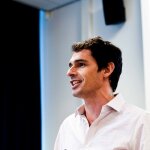 Prof. Edouard Machery is a philosopher of science. He specializes in philosophy of cognitive science and neuroscience. Prof. Machery also works empirically, investigating moral psychology, semantics, and folk epistemology. This year, Prof. Machery has been awarded a Senior Fellowship by the Alexander-von-Humboldt foundation. In December 2017, he will be working with Prof. Newen to develop an empirical research program addressing recent controversies concerning concepts and animal cognition. Their joint work will foster and support the activities of the first experimental philosophy group in Germany which has been established in Bochum in 2014. Prof. Machery received his PhD in philosophy at the Université de Paris-Sorbonne in 2004, and is currently Distinguished Professor at the Department of History and Philosophy of Science and the Department of Philosophy at the University of Pittsburgh. Key publications include his monograph “Doing without Concepts” (2009, Oxford University Press), “Gettier Across Cultures” (2016, Noûs), “If intuitions vary, then what?” (2013, Philosophy and Phenomenological Research), “Two conceptions of subjective experience” (2010, Philosophical Studies), “Semantics, Cross-Cultural Style” (2004, Cognition).
Prof. Edouard Machery is a philosopher of science. He specializes in philosophy of cognitive science and neuroscience. Prof. Machery also works empirically, investigating moral psychology, semantics, and folk epistemology. This year, Prof. Machery has been awarded a Senior Fellowship by the Alexander-von-Humboldt foundation. In December 2017, he will be working with Prof. Newen to develop an empirical research program addressing recent controversies concerning concepts and animal cognition. Their joint work will foster and support the activities of the first experimental philosophy group in Germany which has been established in Bochum in 2014. Prof. Machery received his PhD in philosophy at the Université de Paris-Sorbonne in 2004, and is currently Distinguished Professor at the Department of History and Philosophy of Science and the Department of Philosophy at the University of Pittsburgh. Key publications include his monograph “Doing without Concepts” (2009, Oxford University Press), “Gettier Across Cultures” (2016, Noûs), “If intuitions vary, then what?” (2013, Philosophy and Phenomenological Research), “Two conceptions of subjective experience” (2010, Philosophical Studies), “Semantics, Cross-Cultural Style” (2004, Cognition).
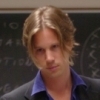 Prof. Bence Nanay has been awarded a Senior Fellowship by the Alexander-von-Humboldt foundation for December 2017 where he will work on the development of a systematic account of perception. He obtained his PhD in philosophy in 2006 under the supervision of John Searle at the University of California, Berkeley and is currently Professor of Philosophy, BOF Research Professor and co-director of the Centre for Philosophical Psychology at the University of Antwerp. His areas of specialization include Philosophy of Mind, Philosophy of Biology and Aesthetics. Besides, he works in Philosophy of Psychology and Cognitive Science. Prof. Nanay has published extensively on the topics of perception, action and attention. Key publications include his monograph “Between Perception and Action” (2014, Oxford University Press), “The role of imagination in decision-making” (2016, Mind & Language), “Perceptual content and the content of mental imagery” (2015, Philosophical Studies), “A Modal Theory of Function” (2010, Journal of Philosophy) and “Attention and Perceptual Content” (2010, Analysis).
Prof. Bence Nanay has been awarded a Senior Fellowship by the Alexander-von-Humboldt foundation for December 2017 where he will work on the development of a systematic account of perception. He obtained his PhD in philosophy in 2006 under the supervision of John Searle at the University of California, Berkeley and is currently Professor of Philosophy, BOF Research Professor and co-director of the Centre for Philosophical Psychology at the University of Antwerp. His areas of specialization include Philosophy of Mind, Philosophy of Biology and Aesthetics. Besides, he works in Philosophy of Psychology and Cognitive Science. Prof. Nanay has published extensively on the topics of perception, action and attention. Key publications include his monograph “Between Perception and Action” (2014, Oxford University Press), “The role of imagination in decision-making” (2016, Mind & Language), “Perceptual content and the content of mental imagery” (2015, Philosophical Studies), “A Modal Theory of Function” (2010, Journal of Philosophy) and “Attention and Perceptual Content” (2010, Analysis).
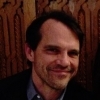 Robert D. Rupert is a Professor for Philosophy since 2013. He works at the University of Colorado, Boulder since 2005. Before that he was at the Texas Tech University, at the University of Washington, Seattle and at the University of Illinois, Chicago, where he received his PhD in Philosophy in 1996. Robert Rupert is a Fellow at the Institute of Cognitive Science and a Member of the Committee on History and Philosophy of Science at the University of Colorado, Boulder. Since 2013 he is also a Professorial Fellow in Philosophy at the University of Edinburgh. His areas of specialisation include Philosophy of Mind, Philosophical Foundation of Cognitive Science, Philosophy of Psychology, Metaphysics and Philosophy of Science with competences in Philosophy of Language, Epistemology and Logic. His research focuses on naturalistic theories of mental content, mental representation, concept acquisition, mental causation, situated cognition, group cognition, natural laws and properties. A representative book: Robert D. Rupert: Cognitive Systems and the Extended Mind. New York: Oxford University Press, 2009.
Robert D. Rupert is a Professor for Philosophy since 2013. He works at the University of Colorado, Boulder since 2005. Before that he was at the Texas Tech University, at the University of Washington, Seattle and at the University of Illinois, Chicago, where he received his PhD in Philosophy in 1996. Robert Rupert is a Fellow at the Institute of Cognitive Science and a Member of the Committee on History and Philosophy of Science at the University of Colorado, Boulder. Since 2013 he is also a Professorial Fellow in Philosophy at the University of Edinburgh. His areas of specialisation include Philosophy of Mind, Philosophical Foundation of Cognitive Science, Philosophy of Psychology, Metaphysics and Philosophy of Science with competences in Philosophy of Language, Epistemology and Logic. His research focuses on naturalistic theories of mental content, mental representation, concept acquisition, mental causation, situated cognition, group cognition, natural laws and properties. A representative book: Robert D. Rupert: Cognitive Systems and the Extended Mind. New York: Oxford University Press, 2009.
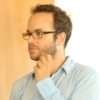 Alexandre Billon works in the faculty of Philosophy and Psychology at the Université Lille 3 since 2007. He had a PhD position and a postdoc from 2001 to 2006 at CRÉA (he received his PhD in 2005) and was a postdoc at the Institut Jean Nicod from 2006 to 2007. His work focuses on the articulation between our subjective, first-person point of view and the objective conception of the world. He has been drawing on philosophical psychopathology, and in particular on the study of schizophrenia, depersonalization and Cotard’s syndrome, to cast a new light on this old question. His main research areas are (self-)consciousness, the self, subjectivity, depersonalization, delusion and happiness.
Alexandre Billon works in the faculty of Philosophy and Psychology at the Université Lille 3 since 2007. He had a PhD position and a postdoc from 2001 to 2006 at CRÉA (he received his PhD in 2005) and was a postdoc at the Institut Jean Nicod from 2006 to 2007. His work focuses on the articulation between our subjective, first-person point of view and the objective conception of the world. He has been drawing on philosophical psychopathology, and in particular on the study of schizophrenia, depersonalization and Cotard’s syndrome, to cast a new light on this old question. His main research areas are (self-)consciousness, the self, subjectivity, depersonalization, delusion and happiness.
 Michael D. Kirchhoff received his PhD at the Macquarie University in Australia. Now he works at the university of Wollongong His research is located in one of the most exciting and fast moving areas of research in contemporary philosophy.His recent research focuses primarily on exploring to possibility of diachronic inter-level relations of dependence in cognitive systems and in dynamical systems more generally. He’s currently working on a proposal for a Discovery Early Career Researcher Award with the Australian Research Council. He intend to explore issues such as micro-temporality, the free energy principle and the self, and work on second-wave arguments for the hypothesis of extended cognition.
Michael D. Kirchhoff received his PhD at the Macquarie University in Australia. Now he works at the university of Wollongong His research is located in one of the most exciting and fast moving areas of research in contemporary philosophy.His recent research focuses primarily on exploring to possibility of diachronic inter-level relations of dependence in cognitive systems and in dynamical systems more generally. He’s currently working on a proposal for a Discovery Early Career Researcher Award with the Australian Research Council. He intend to explore issues such as micro-temporality, the free energy principle and the self, and work on second-wave arguments for the hypothesis of extended cognition.
Hosts: Prof. Dr. Albert Newen und Prof. Shaun Gallagher
 István Aranyosi received his PhD in 2005 at the Central European University. He is currently Assistant Professor of Philosophy at Bilkent University. He specializes in the philosophy of mind and of cognitive science and in metaphysics, and has further teaching competence in philosophy of language philosophy of religion, Ancient and Modern social and political philosophy. His publications include two books – The Peripheral Mind (Oxford University Press, 2013) and God, Mind, and Logical Space (Palgrave Macmillan, 2013) – as well as a number of articles on various topics within his fields of research, such as “A New Argument for Mind-Brain Identity,” British Journal for the Philosophy of Science 62 (3): 489–517, 2011 (Honorable Mention at the American Philosophical Association 2012 Article Prize), "The Solo Numero Paradox," American Philosophical Quarterly 48 (4): 347–360 , 2011, and "Should We Fear Quantum Torment?," Ratio 25 (3): 249–259, 2012.
István Aranyosi received his PhD in 2005 at the Central European University. He is currently Assistant Professor of Philosophy at Bilkent University. He specializes in the philosophy of mind and of cognitive science and in metaphysics, and has further teaching competence in philosophy of language philosophy of religion, Ancient and Modern social and political philosophy. His publications include two books – The Peripheral Mind (Oxford University Press, 2013) and God, Mind, and Logical Space (Palgrave Macmillan, 2013) – as well as a number of articles on various topics within his fields of research, such as “A New Argument for Mind-Brain Identity,” British Journal for the Philosophy of Science 62 (3): 489–517, 2011 (Honorable Mention at the American Philosophical Association 2012 Article Prize), "The Solo Numero Paradox," American Philosophical Quarterly 48 (4): 347–360 , 2011, and "Should We Fear Quantum Torment?," Ratio 25 (3): 249–259, 2012.
01 October – 31 December 2016
Host: Prof. Heinrich Wansing
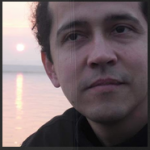 João Marcos is a logician and holds a PhD in Mathematics from the TU-Lisbon (Portugal) and a PhD in Philosophy from the State University of Campinas (Brazil). He is currently an Associate Professor at the Department of Informatics and Applied Mathematics (DIMAp) of UFRN (Brazil), and collaborates with the Security and Quantum Information Group (SQIG) / IT (Portugal).
João Marcos is a logician and holds a PhD in Mathematics from the TU-Lisbon (Portugal) and a PhD in Philosophy from the State University of Campinas (Brazil). He is currently an Associate Professor at the Department of Informatics and Applied Mathematics (DIMAp) of UFRN (Brazil), and collaborates with the Security and Quantum Information Group (SQIG) / IT (Portugal).
Website
Some recent publications:
1. João Marcos and Claudia Nalon, Classical Resolution for Many-Valued Logics, Electronic Notes in Theoretical Computer Science 323 (2016), 253-270.
2. Carlos Caleireo, João Marcos and Marco Volpe, Bivalent semantics, generalized compositionality and analytic classic-like tableaux for finite-valued logics,Theoretical Computer Science 603 (2015), 84-110, 2015.
3. Adriano Dodo and João Marcos, Negative modalities, consistency and determinedness, Electronic Notes in Theoretical Computer Science 300 (2014), 21-45.
4. Carlos Caleireo and João Marcos, Many-valuedness meets bivalence: Using logical values in an effective way, Journal of Multiple-Valued Logic and Soft Computing 19 (2012), 51-70.
01 October – 31 December 2016
Host: Prof. Heinrich Wansing
 Carolina Blasio is a graduate student of logic and philosophy at the Universidade Estadual de Campinas, Institute of Philosophy and Human Sciences, Brazil.
Carolina Blasio is a graduate student of logic and philosophy at the Universidade Estadual de Campinas, Institute of Philosophy and Human Sciences, Brazil.
Carolina Blasio and Prof. João Marcos are visiting the RUB in the framework of the Marie Curie project "GeTFun Generalizing Truth-Functionality", PIRSES-GA-2012-318986 funded by EU-FP7.
November 2016
Host: Prof. Heinrich Wansing
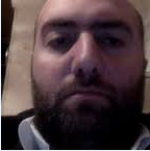 Dept. of Mathematical Logics, Andrea Razmadze Mathematical Institute of I. Javakhishvili Tbilisi State University.
Dept. of Mathematical Logics, Andrea Razmadze Mathematical Institute of I. Javakhishvili Tbilisi State University.
Dr Uridia is visting Bochum with a DAAD fellowship and is working on non-classical and epistemic logic, in particular logics of belief and group belief in structured set of agents.
Some recent publications:
1. Philippe Balbiani, David Pearce, Levan Uridia, On Logics of Group Belief in Structured Coalitions, JELIA 2016, Springer, 2016, 97-111.
2. David Pearce and Levan Uridia, Trust, Belief and Honesty, Global Conference on Artificial Intelligence, 2015, 215-228.
3. David Pearce and Levan Uridia, Algebraic semantics for modal and superintuitionistic non-monotonic logics, Journal of Applied Non-Classical Logics 23 (2013).
4. Philippe Balbiani and Levan Uridia, Completeness and Definability of a Modal Logic Interpreted over Iterated Strict Partial Orders, Advances in Modal Logic 2012, College Publications, London, 2012, 71-88.
Oktober 2016
Hosts: Prof. Dr. Albert Newen und Prof. Dr. Tobias Schlicht
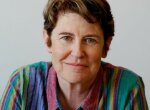 She received her Ph.D. in the philosophy of science from the University of Western Ontario in Canada in 1988. She then took up a two-year post-doc from the Social Science and Humanities Research Council of Canada, during which time she spent six months as a Research Fellow at the Center for Interdisciplinary Research (ZiF) at the University of Bielefeld. She was appointed as an Assistant Professor of Philosophy at Rutgers (New Jersey) in 1990. She was promoted to Associate Professor in 1996 and Full Professor in 2008. She also has an appointment as an Associate Member of the Rutgers Center for Cognitive Science.
She received her Ph.D. in the philosophy of science from the University of Western Ontario in Canada in 1988. She then took up a two-year post-doc from the Social Science and Humanities Research Council of Canada, during which time she spent six months as a Research Fellow at the Center for Interdisciplinary Research (ZiF) at the University of Bielefeld. She was appointed as an Assistant Professor of Philosophy at Rutgers (New Jersey) in 1990. She was promoted to Associate Professor in 1996 and Full Professor in 2008. She also has an appointment as an Associate Member of the Rutgers Center for Cognitive Science.
Research Focus: Her research is focused on issues in the philosophy of mind and psychology. She is particularly interested in the nature of psychological explanation, both scientific and commonsense, and the relation between the two.
Awards and Fellowships:
Rutgers Center for Cultural Analysis Research Fellowship, 2012-2013.
Research Fellow, Institute for Advanced Studies, Hebrew University, Jerusalem (2011)
Research Fellow, ZIF, University of Bielefeld, Germany (Spring 1990)
Social Sciences and Humanities Research Council of Canada Post-Doctoral Fellowship (1989-1991)
References:
Egan, F. “How to Think about Mental Content,” Philosophical Studies 170 (2014), 115-135.
Egan, F. “Representationalism,” in The Oxford Handbook of Philosophy of Cognitive Science, E. Margolis, R. Samuels, and S. Stich, eds., Oxford University Press, 2012, 250-72.
Egan, F. “Doing Cognitive Neuroscience: A Third Way,” Synthese 153 (2006), 377-91 (co-authored with Robert Matthews).
Oktober 2016
Hosts: Prof. Dr. Albert Newen
 BS, MS, PhD Cornell. His current research is focused primarily in the philosophy of mind, specifically on propositional attitudes. To this end, he has been concerned to develop a measurement-theoretic account of the semantics of propositional attitude predicates (Measure of Mind, Oxford 2007) as well as a dispositionalist account of the attitudes themselves. He continues to be interested in issues in the foundations of cognitive science, especially as they have to do with linguistic competence.
BS, MS, PhD Cornell. His current research is focused primarily in the philosophy of mind, specifically on propositional attitudes. To this end, he has been concerned to develop a measurement-theoretic account of the semantics of propositional attitude predicates (Measure of Mind, Oxford 2007) as well as a dispositionalist account of the attitudes themselves. He continues to be interested in issues in the foundations of cognitive science, especially as they have to do with linguistic competence.
01 July – 30th September 2016
Host: Prof. Heinrich Wansin
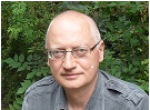 from the University Zielona Góra (Poland) visited Bochum with a Humboldt Research Fellowship from 1 July until 30 September 2016 and is working on the syntactic method of refuting. He is interested in the refutation rule in non-classical logics (especially modal and intuitionistic logic) has published in international journals and presented at important international conferences.
from the University Zielona Góra (Poland) visited Bochum with a Humboldt Research Fellowship from 1 July until 30 September 2016 and is working on the syntactic method of refuting. He is interested in the refutation rule in non-classical logics (especially modal and intuitionistic logic) has published in international journals and presented at important international conferences.
Some recent publications:
1. What is a refutation system? [in] Let's Be Logical, A. Moktefi, A. Moretti, F. Schang (eds.), London, College Publications, 2016, 189-198.
2. A system for proper multiple-conclusion entailment, Logic and Logical Philosophy 24 (2015), 241-253.
3. Refutation systems in propositional logic, [in] Handbook of Philosophical Logic, Volume 16, D. Gabbay and F. Guenthner(eds.), Springer 2011, 115 – 157.
4. On refutation rules, Logica Universalis 5 (2011), 249-254.
Mai 2015
Hosts: Prof. Dr. Albert Newen und Prof. Dr. Martin Brüne
 Valerie Gray Hardcastle is Professor of Philosophy, Psychology, and Psychiatry & Behavioral Neuroscience at the University of Cincinnati; she is Scholar-in-Residence at the Weaver Institute of Law and Psychiatry and Acting Director of the Medicine,Health, and Society Program at the University of Cincinnati. As an internationally recognized scholar, Prof. Hardcastle is the author of five books and over 130 essays. She studies the nature and structure of interdisciplinary theories in the cognitive sciences and has focused primarily on developing a philosophical framework for understanding conscious phenomena responsive to neuroscientific, psychiatric, and psychological data. Currently, she is investigating the neuroscience of violence and its implications for both our understanding of human nature and the criminal justice system. She is also trying to figure out whether notions of embodied cognition help or hinder theorizing about consciousness. She received a bachelor's degree with a double major in philosophy and political science from the University of California, Berkeley, a master's degree in philosophy from the University of Houston, and an interdisciplinary PhD in cognitive science and philosophy from the University of California, San Diego.
Valerie Gray Hardcastle is Professor of Philosophy, Psychology, and Psychiatry & Behavioral Neuroscience at the University of Cincinnati; she is Scholar-in-Residence at the Weaver Institute of Law and Psychiatry and Acting Director of the Medicine,Health, and Society Program at the University of Cincinnati. As an internationally recognized scholar, Prof. Hardcastle is the author of five books and over 130 essays. She studies the nature and structure of interdisciplinary theories in the cognitive sciences and has focused primarily on developing a philosophical framework for understanding conscious phenomena responsive to neuroscientific, psychiatric, and psychological data. Currently, she is investigating the neuroscience of violence and its implications for both our understanding of human nature and the criminal justice system. She is also trying to figure out whether notions of embodied cognition help or hinder theorizing about consciousness. She received a bachelor's degree with a double major in philosophy and political science from the University of California, Berkeley, a master's degree in philosophy from the University of Houston, and an interdisciplinary PhD in cognitive science and philosophy from the University of California, San Diego.
References:
Valerie Hardcastle, 2001. The Myth of Pain, MIT Press.
Valerie Hardcastle, 2008. Constructing the Self, John Benjamins Publishing Company.
April 2015 - Januar 2016
Host: Prof. Heinrich Wansing
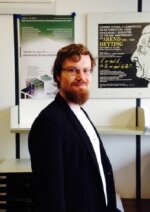 Alexander von Humboldt Research Fellowship
Alexander von Humboldt Research Fellowship
Prof. Dr. Grigory Olkhovikov from the Ural Federal University in Yekaterinburg (Russia) is taking up his Humboldt Research Fellowship at Ruhr-University Bochum from 1st of April 2015 until 31st of January 2016.
Areas of specialization:
Non-classical logic, modal logic, formal philosophy
Areas of competence:
epistemology, philosophy of mathematics, philosophy of science
Key publications:
1.G. Olhovikov, Model-theoretic characterization of intuitionisitc predicate formulas, Journal of Logic and Computation 24 (2014), 809-829.
2.G. Mints, G. Olhovikov and A. Urquhart (2013) Failure of interpolation in constant domain intuitionistic logic, Journal of Symbolic Logic 78 (2013), 937-950.
3.G. Olhovikov (2013) Model-theoretic characterization of intuitionistic formulas, Review of Symbolic Logic 6 (2013), 348-365.
4.G. Olkhovikov and P. Schroeder-Heister, On Flattening Elimination Rules, Review of Symbolic Logic 7 (2014), 60-72
Poster
Juni 2014
Host: Prof. Heinrich Wansing
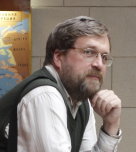 Alexander von Humboldt Research Fellowship
Alexander von Humboldt Research Fellowship
Prof. Dr Sergei P. Odintsov from the Sobolev Institute of Mathematics in Novosibirsk (Russia) is taking up his Humboldt Research Fellowship at Ruhr-University Bochum starting from 1st June 2014 until 30th of June.
Specific scientific area: Prof. Odintsov is a logician. His special scientific interests are non-classical logics (constructive and paraconsistent ones, etc), logic programming (stable models and well-founded semantics, etc) and philosophical logic (theory of truth according to Kripke, etc). His editorial board memberships include Algebra and Logic (1989 - 1994), Studia Logica (associate editor since 2010), Logica Universalis (since 2007) and Logic and Logical Philosophy (since 2004).
Research Interests: His research here in Bochum concerns ´How to define a logic over a class of bilattices‘.
[Announcement (English)]
Februar 2015
Host: Prof. Dr. Tobias Schlicht
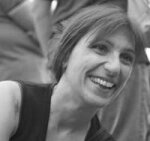 After receiving a PhD in Philosophy from the University of Genoa in 2006, Cristina Amoretti has been Post Doctoral Fellow at the University of Genoa and at the ICT of the CNR, Rome, Visiting Scholar at the University of Malta, and Visiting Research Fellow at King’s College, London. Moving from Donald Davidson’s triangular externalism, she focused her research on different kinds of externalism and defended the idea of an embodied and embedded mind. Her current interests regard philosophy of science (the social dimension of scientific knowledge and rationality), philosophy of mind and cognitive sciences (content and vehicle externalism; semantic and phenomenal externalism), as well as philosophy of medicine (gender-medicine; the relationship between an externalist theory of mind and the notion of mental disorder). Among her latest publications: Concepts within the model of triangulation, ProtoSociology, 30, 2013, pp. 50-63; A way of saving normative epistemology? Scientific knowledge without standpoint theories (with N. Vassallo), in: V. Karakostas, D. Dieks (eds.), Perspectives and Foundational Problems in Philosophy of Science (Springer 2013); The Mind Outside The Head. Externalist Perspectives About The Mental (Italian - FrancoAngeli 2011); Reason and Rationality (ed. with N. Vassallo - Ontos 2012); Triangulation: From an Epistemological Point of View (ed. with G. Preyer - Ontos 2011).
After receiving a PhD in Philosophy from the University of Genoa in 2006, Cristina Amoretti has been Post Doctoral Fellow at the University of Genoa and at the ICT of the CNR, Rome, Visiting Scholar at the University of Malta, and Visiting Research Fellow at King’s College, London. Moving from Donald Davidson’s triangular externalism, she focused her research on different kinds of externalism and defended the idea of an embodied and embedded mind. Her current interests regard philosophy of science (the social dimension of scientific knowledge and rationality), philosophy of mind and cognitive sciences (content and vehicle externalism; semantic and phenomenal externalism), as well as philosophy of medicine (gender-medicine; the relationship between an externalist theory of mind and the notion of mental disorder). Among her latest publications: Concepts within the model of triangulation, ProtoSociology, 30, 2013, pp. 50-63; A way of saving normative epistemology? Scientific knowledge without standpoint theories (with N. Vassallo), in: V. Karakostas, D. Dieks (eds.), Perspectives and Foundational Problems in Philosophy of Science (Springer 2013); The Mind Outside The Head. Externalist Perspectives About The Mental (Italian - FrancoAngeli 2011); Reason and Rationality (ed. with N. Vassallo - Ontos 2012); Triangulation: From an Epistemological Point of View (ed. with G. Preyer - Ontos 2011).
Oktober 2014 - June 2015
Host: Prof. Dr. Tobias Schlicht
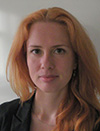 Vivian Bohl is a Research Fellow in Theoretical Philosophy at the Philosophy Department of the University of Tartu (Estonia). In 2014 she defended her PhD-thesis on social cognition ("How do we understand others? Beyond theories of mindreading and interactionism." University of Tartu Press, 2014). Her further research interests encompass philosophy of mind, cognitive science and phenomenology. During her stay at the Center for Mind, Brain and Cognitive Evolution in Bochum she is hosted by Prof. Tobias Schlicht (Institute for Philosophy II, Ruhr-Universität Bochum). Selected publications: - We read minds to shape relationships. In: Philosophical Psychology (online), 2014. - (with Nivedita Gangopadhyay): Theory of mind and the unobservability of other minds. In: Philosophical Explorations 17 (2014), 203-222. - (with Wouter van den Bos): Toward an integrative account of social cognition: Marrying theory of mind and interactionism to study the interplay of Type 1 and Type 2 processes. In: Frontiers in Human Neuroscience (online), 2012.
Vivian Bohl is a Research Fellow in Theoretical Philosophy at the Philosophy Department of the University of Tartu (Estonia). In 2014 she defended her PhD-thesis on social cognition ("How do we understand others? Beyond theories of mindreading and interactionism." University of Tartu Press, 2014). Her further research interests encompass philosophy of mind, cognitive science and phenomenology. During her stay at the Center for Mind, Brain and Cognitive Evolution in Bochum she is hosted by Prof. Tobias Schlicht (Institute for Philosophy II, Ruhr-Universität Bochum). Selected publications: - We read minds to shape relationships. In: Philosophical Psychology (online), 2014. - (with Nivedita Gangopadhyay): Theory of mind and the unobservability of other minds. In: Philosophical Explorations 17 (2014), 203-222. - (with Wouter van den Bos): Toward an integrative account of social cognition: Marrying theory of mind and interactionism to study the interplay of Type 1 and Type 2 processes. In: Frontiers in Human Neuroscience (online), 2012.
November 2014 - Juli 2015
Host: Prof. Dr. Albert Newen
 Hans-Johann Glock is Professor of Philosophy at the University of Zurich, and Visiting Professor at the University of Reading. Prof. Glock is a highly accomplished and renowned philosopher. His main contributions have been to four distinct areas of research: History of Analytic Philosophy, Philosophy of Language, Mind and Animals Cognition. For 2014-15 he received a Research Award of the Alexander of Humboldt Foundation. During his stay, he will collaborate with members of the Depart. of Philosophy II as well as the Center for Mind, Brain and Cognitive Evolution in Bochum.
Hans-Johann Glock is Professor of Philosophy at the University of Zurich, and Visiting Professor at the University of Reading. Prof. Glock is a highly accomplished and renowned philosopher. His main contributions have been to four distinct areas of research: History of Analytic Philosophy, Philosophy of Language, Mind and Animals Cognition. For 2014-15 he received a Research Award of the Alexander of Humboldt Foundation. During his stay, he will collaborate with members of the Depart. of Philosophy II as well as the Center for Mind, Brain and Cognitive Evolution in Bochum.
2012 - 2017
Host: Prof. Dr. Albert Newen
 "Anneliese-Meier-Preisträger" Fellow
"Anneliese-Meier-Preisträger" Fellow
Shaun Gallagher holds the Lillian and Morrie Moss Chair of Excellence in Philosophy at the University of Memphis. He has secondary appointments as Research Professor of Philosophy and Cognitive Science at the University of Hertfordshire in England, Honorary Professor of Philosophy at the University of Copenhagen, and as affiliated research faculty member at the Institute of Simulation and Training at the University of Central Florida.
His s research focuses on phenomenology, philosophy of mind, cognitive science, and hermeneutics. He received his Ph.D in philosophy from Bryn Mawr College and studied philosophy at Villanova Universityand Leuven, and economics at the State University of New York - Buffalo. He has held visiting positions at several international Universities, including the Centre de Recherche en Epistémelogie Appliquée in Paris; the Ecole Normale Supériure, Lyon; theUniversity of Copenhagen; and the Cognition and Brain Sciences Unit at the University of Cambridge. His previous positions include Professor of Philosophy and Cognitive Sciences at the University of Central Florida
October 2012 - September 2014
Host: Prof. Dr. Albert Newen
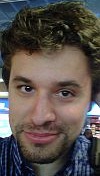 Humboldt-Postdoc-Fellow
Humboldt-Postdoc-Fellow
From October to December 2011, Luca Barlassina is going to be research fellow at the Bochum Center for Mind, Brain and Cognitive Evolution, where he will join Prof. Newen's research group on social cognition. In May 2011 Luca Barlassina got a PhD in philosophy from the University of Milan. During his PhD, he was a visiting graduate student at the Rutgers Center for Cognitive Science and at the Institut Jean Nicod.
His research lies at the intersection between philosophy of mind and cognitive science, with a special focus on social cognition. He has authored and co-authored papers on mental simulation, disgust attribution, and moral judgment in autism. He's currently working on mirror mechanisms, phenomenal mindreading, and the embodied character of emotions.
Dr. Luca Barlassina, Dipartimento di Filosofia, Università degli Studi di Milano
April, August - September 2014
Hosts: Prof. Dr. Albert Newen und Prof. Dr. Drs. hc Onur Güntürkün
 Piera Filippi obtained her PhD in philosophy of language and mind from the University of Palermo (Italy) in April 2012. The main focus of her doctoral project was on the role of pattern perception, prosody and social cognition in the emergence of propositional language. Dr. Filippi is currently a postdoctoral fellow at the Department of Cognitive Biology, University of Vienna, where she conducts experimental research on the role of prosodic enhancement in the acquisition of spoken language. Dr. Filippi has broad research interests in the philosophy of mind and cognitive ethology. She integrates her theoretical background in philosophy with empirical studies in the field of cognitive biology, experimental psychology, and linguistics.
Piera Filippi obtained her PhD in philosophy of language and mind from the University of Palermo (Italy) in April 2012. The main focus of her doctoral project was on the role of pattern perception, prosody and social cognition in the emergence of propositional language. Dr. Filippi is currently a postdoctoral fellow at the Department of Cognitive Biology, University of Vienna, where she conducts experimental research on the role of prosodic enhancement in the acquisition of spoken language. Dr. Filippi has broad research interests in the philosophy of mind and cognitive ethology. She integrates her theoretical background in philosophy with empirical studies in the field of cognitive biology, experimental psychology, and linguistics.
Juni 2014
Host: Prof. Dr. Albert Newen
 Dr. Hsiang-Yun Chen received her PhD in Philosophy from the University of Texas at Austin in 2012 under the supervision of Josh Dever, Nichoals Asher, and Hans Kamp. She is currently a CFD postdoctoral fellow and visiting assistant professor at Centenary College of Louisiana. Before that she was a postdoctoral research fellow at Academia Sincia in Taiwan. Her main research areas are philosophy of language and philosophical linguistics; she also has active interests in areas of philosophy of mind, epistemology, and action theory that overlap with her enthusiasm for language. She has been working on foundational issues in theory of reference, particularly anaphora and definite descriptions, and how a broad range of linguistic data determines the right shape of semantic analysis. Her most recent projects concern attitude reports, intentional identity, dynamic semantics, and the semantics-pragmatics distinction.
Dr. Hsiang-Yun Chen received her PhD in Philosophy from the University of Texas at Austin in 2012 under the supervision of Josh Dever, Nichoals Asher, and Hans Kamp. She is currently a CFD postdoctoral fellow and visiting assistant professor at Centenary College of Louisiana. Before that she was a postdoctoral research fellow at Academia Sincia in Taiwan. Her main research areas are philosophy of language and philosophical linguistics; she also has active interests in areas of philosophy of mind, epistemology, and action theory that overlap with her enthusiasm for language. She has been working on foundational issues in theory of reference, particularly anaphora and definite descriptions, and how a broad range of linguistic data determines the right shape of semantic analysis. Her most recent projects concern attitude reports, intentional identity, dynamic semantics, and the semantics-pragmatics distinction.
Juni 2014; Juni - Juli 2013; Juni - Juli 2012
Host: Prof. Dr. Albert Newen
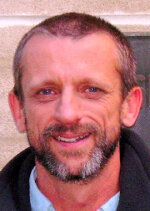 Colin Allen is Professor of Philosophy at the University of Bloomington, Indiana. He is well-known internationally for his outstanding research in animal mind, philosophy of biology and artificial intelligence. It is characteristic for his work that he combines philosophical analysis with empirical cognitive sciences, especially relying on recent developments in animal research and robotics. Important books are entitled "Species of the Mind", "The Cognitive Animal" and "Moral Machines". Alexander von Humboldt Research Award 2010 / 2011
Colin Allen is Professor of Philosophy at the University of Bloomington, Indiana. He is well-known internationally for his outstanding research in animal mind, philosophy of biology and artificial intelligence. It is characteristic for his work that he combines philosophical analysis with empirical cognitive sciences, especially relying on recent developments in animal research and robotics. Important books are entitled "Species of the Mind", "The Cognitive Animal" and "Moral Machines". Alexander von Humboldt Research Award 2010 / 2011
Animal Minds and Artificial Intelligence
Indiana University Bloomington
Alexander von Humboldt-Laureate 2010
PDF Download
Mai - Juni 2014
Hosts: Prof. Dr. Albert Newen and Prof. Dr. Tobias Schlicht
 Having received a PhD in philosophy the University of Wisconsin-Madison in spring 2011, Shannon Spaulding has been holding a position as Assistant Professor of Philosophy at Oklahoma State University since fall 2012. Her areas of specialization include philosophy of mind and cognitive science, with an emphasis on social cognition. She has also research interests in imagination and fiction. Her research focuses on clarifying and critically analyzing the challenges to the practice known as mindreading stemming from embodied cognition.
Having received a PhD in philosophy the University of Wisconsin-Madison in spring 2011, Shannon Spaulding has been holding a position as Assistant Professor of Philosophy at Oklahoma State University since fall 2012. Her areas of specialization include philosophy of mind and cognitive science, with an emphasis on social cognition. She has also research interests in imagination and fiction. Her research focuses on clarifying and critically analyzing the challenges to the practice known as mindreading stemming from embodied cognition.
Latest publications:
April 2014
Host: Prof. Dr. Albert Newen
 Prof. Dr. Bence Nanay has received a Senior Fellowship from the Center for Mind, Brain and Cognitive Evolution for April 2014 where he will work on his current research topics. He obtained his PhD in philosophy in 2006 under the supervision of John Searle at the University of California, Berkeley and is currently Professor of Philosophy, BOF Research Professor and Co-director of the Centre for Philosophical Psychology at the University of Antwerp as well as Senior Research Associate at the University of Cambridge, Peterhouse. His areas of specialization include the Philosophy of Mind, the Philosophy of Biology and Aesthetics, with competences in the Philosophy of Psychology and Cognitive Science. His publications comprise writings on perception, action and attention such as the forthcoming book “Between Perception and Action” (2014), Oxford University Press; “A Modal Theory of Function” (2010), Journal of Philosophy, 107, 412-431; and “Attention and Perceptual Content” (2010), Analysis, 70, 263-270.
Prof. Dr. Bence Nanay has received a Senior Fellowship from the Center for Mind, Brain and Cognitive Evolution for April 2014 where he will work on his current research topics. He obtained his PhD in philosophy in 2006 under the supervision of John Searle at the University of California, Berkeley and is currently Professor of Philosophy, BOF Research Professor and Co-director of the Centre for Philosophical Psychology at the University of Antwerp as well as Senior Research Associate at the University of Cambridge, Peterhouse. His areas of specialization include the Philosophy of Mind, the Philosophy of Biology and Aesthetics, with competences in the Philosophy of Psychology and Cognitive Science. His publications comprise writings on perception, action and attention such as the forthcoming book “Between Perception and Action” (2014), Oxford University Press; “A Modal Theory of Function” (2010), Journal of Philosophy, 107, 412-431; and “Attention and Perceptual Content” (2010), Analysis, 70, 263-270.
January 2013 - June 2014
Host Prof. James Wilberding
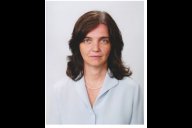 Humboldt Researcher Fellowship
Humboldt Researcher Fellowship
Prof. Dr. Svetla Slaveva-Griffin is Associate Professor in the Department of Classics and a core faculty member in the Program in History and Philosophy of Science at the Florida State University, Florida, USA. She pursues a wide range of research interests in ancient philosophy, with particular focus on the Platonic tradition and its reception in Late Antiquity and the Middle Ages. Among the underlying themes of her research are concept and intertext in Plato, number and the Neoplatonic metaphysical landscape, ontology and salvation, Neoplatonism and the East, Neoplatonism and medicine, soul and body in the Hellenic and Christian Platonic tradition. In addition to publishing numerous articles, she is the author of Plotinus on Number (Oxford University Press 2009). She is currently editing, with Prof. Pauliina Remes (University of Uppsala and University of Helsinki), The Handbook of Neoplatonism (Acumen Press, forthcoming).
During her visit, Prof. Dr. Slaveva-Griffin will work on a comprehensive project examining the relationship between Neoplatonism and medicine in 3rd - 6th century CE. It used to be a common perception among scholars of late ancient philosophy that the Neoplatonists found little to no value in the body since their philosophical pursuits were primarily directed at explaining the origin of soul from the higher, immaterial orders of reality. But as is oftentimes the case with common perceptions, this view has most recently started to move closer to the category of debunked stereotypes. Prof. Dr. Slaveva-Griffin's examination of the relationship between Neoplatonism and medicine will shed new light on the formative period in which Neoplatonism establishes itself as a dynamic communicator of a broad range of intellectual, including medical, ideas. The first four centuries after Galen's death faced the task of absorbing his legacy in diverse medical and philosophical environment that ultimately led to fully redeeming the theological value of the body in early Christian thought. Paradoxically this conceptual shift could not have taken place without the Neoplatonists' help.
Prof. Dr. Slaveva-Griffin is a recipient of Research Travel Grant from the Wellcome Trust (2008) and a Developing Scholar Award from the Florida State University (2012).
juli 2012 - juni 2014
Host: Prof. Dr. Albert Newen
 Dr. Nivedita Gangopadhyay has received a Marie Curie Intra-European Fellowship (Spring 2012-2014) for continuing her research in social cognition at the Center for Mind, Brain and Cognitive Evolution. She obtained her PhD in Philosophy of Mind and Cognitive Science in 2007 under the supervision of Dr. Roberto Casati at the Institut Jean Nicod (CNRS/EHESS/ENS), Paris, France. Her PhD dissertation is titled "The Sensorimotor Theories of Visual Consciousness". As part of the Marie Curie Fellowship, her research project proposes to address the issue of how one knows other minds by developing an original theoretical framework which focuses on some basic forms of understanding other minds by understanding the others' embodied intentionality or skilful bodily engagement with the world. The project combines philosophical analyses with discussions of empirical studies primarily in psychology and neuroscience. Among her other publications she is also the first editor of the volume Perception, Action and Consciousness: Sensorimotor Dynamics and Two Visual Systems (2010), Oxford University Press.
Dr. Nivedita Gangopadhyay has received a Marie Curie Intra-European Fellowship (Spring 2012-2014) for continuing her research in social cognition at the Center for Mind, Brain and Cognitive Evolution. She obtained her PhD in Philosophy of Mind and Cognitive Science in 2007 under the supervision of Dr. Roberto Casati at the Institut Jean Nicod (CNRS/EHESS/ENS), Paris, France. Her PhD dissertation is titled "The Sensorimotor Theories of Visual Consciousness". As part of the Marie Curie Fellowship, her research project proposes to address the issue of how one knows other minds by developing an original theoretical framework which focuses on some basic forms of understanding other minds by understanding the others' embodied intentionality or skilful bodily engagement with the world. The project combines philosophical analyses with discussions of empirical studies primarily in psychology and neuroscience. Among her other publications she is also the first editor of the volume Perception, Action and Consciousness: Sensorimotor Dynamics and Two Visual Systems (2010), Oxford University Press.
June - December 2013
Host: Prof. Heinrich Wansing
 Humboldt Research Award Winner
Humboldt Research Award Winner
Graham Priest is one of the worldwide leading experts in philosophical logic. He is renowned for his original, agenda-setting contributions to the analysis of the semantic, set-theoretic and Liar paradoxes, to paraconsistent and non-classical logic in general, and to central philosophical problems in areas ranging from metaphysics to the philosophy of language and the philosophy of mathematics.
Priest has made seminal contributions to establishing paraconsistent, inconsistency-tolerant reasoning and logic as a respectable and well-received area of research in philosophy, logic, and artificial intelligence. He also is known as the most important and forceful defender of a much debated philosophical view related to paraconsistency, namely dialetheism. Dialetheists hold that there are true contradictions, and according to Priest the paradoxes provide the most salient examples of this phenomenon.
Prof. Priest has published more than 150 research papers, mostly in leading international peer-reviewed journals within philosophy and logic. He is the author of eight books, including Beyond the Limits of Thought, 1st ed. Cambridge UP, 1995, 2nd ed., Oxford UP, 2002, Towards Non-Being: the Semantics and Metaphysics of Intentionality, Oxford UP, 2005, and Doubt Truth to be a Liar, Oxford UP, 2006. Priest's Introduction to Non-Classical Logic: From If to Is, Cambridge UP, 2008, is seen by many experts in philosophical logic not only as the most comprehensive but also the best textbook on philosophical logic.
August 2013 - Dezember 2013
Host: Prof. Dr. Albert Newen
Matt Bower earned a BA in philosophy from Beloit College (2007) and an MA and PhD in philosophy from the University of Memphis (2013). His dissertation, titled "The Birth of the World: An Exploration in Husserl's Genetic Phenomenology," presents an interpretation of Edmund Husserl's theory of the dynamics of intentionality, especially in perceptual and affective experience, utilizing recently published and yet untranslated manuscripts written in Husserl's later years. The account emphasizes the importance of bodily affects for motivating behaviors crucial in the process of cognitive ontogeny. Matt's current research focuses on developing an enactive account of perception highlighting its dependence on affective experience,elaborating possible contributions of classical phenomenology to the problem of perceptual content, and understanding low-level social cognition in embodied and enactive terms on phenomenological grounds.
June 2013 - December 2013
Host: Prof. Heinrich Wansing
 Dr Hitoshi Omori is a postdoctoral researcher in logic at the Graduate Center, City Universit of New York. His project is funded by the Japan Society for the Promotion of Science (JSPS), and he is hosted by Professor Graham Priest. From June 2013 to January 2014, Hitoshi Omori was visiting the Department of Philosophy II, Ruhr-Universität Bochum working with Professor Heinrich Wansing.
Dr Hitoshi Omori is a postdoctoral researcher in logic at the Graduate Center, City Universit of New York. His project is funded by the Japan Society for the Promotion of Science (JSPS), and he is hosted by Professor Graham Priest. From June 2013 to January 2014, Hitoshi Omori was visiting the Department of Philosophy II, Ruhr-Universität Bochum working with Professor Heinrich Wansing.
Hitoshi Omori did his PhD at the Tokyo Institute of Technology under the supervision of Professor Toshiharu Waragai, and spent a year as a postdoc at the Group of Logic, Statistics and Informatics, Kobe University (mentor: Professor Makoto Kikuchi) before he went to New York in August 2012. His research interest lies in non-classical logic, especially paraconsistent logic, many-valued logic, and modal logic.
Oktober - November 2013
Host: Prof. Dr. Albert Newen
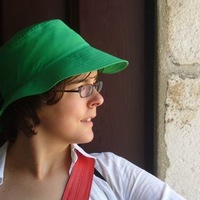 Dr. Hanne de Jaegher has received a short-term fellowship in the context of the Anneliese-Maier award (Prof. Gallagher and Prof. Newen) to continue her research on the role of social interaction processes in intersubjectivity at the Center for Mind, Brain and Cognitive Evolution. She obtained her PhD in Philosophy of Cognitive Science in 2007 under the supervision of Andy Clark at the University of Sussex (title of her dissertation: "Social Interaction Rhythm and Participatory Sense-Making: An embodied, interactional approach to social understanding, with implications for autism") and currently holds a position as a Research Fellow at the University of the Basque Country in San Sebastián. She is combining her expertise in the Philosophy of Mind with perspectives from philosophy of biology, psychology and cognitive science. She works on topics such as intersubjectivity, the relation between individual and interactional autonomy, participatory sense-making, enaction, autism and the interplay between those topics. Among her publications are "Can social interaction constitute social cognition?" (2010), Trends in Cognitive Sciences, 14(10), 441-447 (co-authored with Shaun Gallagher and Ezequiel Di Paolo) and "Participatory Sense-Making: An enactive approach to social cognition" (2007), Phenomenology and the Cognitive Sciences, 6(4), 485-507 (co-authored with Ezequiel Di Paolo).
Dr. Hanne de Jaegher has received a short-term fellowship in the context of the Anneliese-Maier award (Prof. Gallagher and Prof. Newen) to continue her research on the role of social interaction processes in intersubjectivity at the Center for Mind, Brain and Cognitive Evolution. She obtained her PhD in Philosophy of Cognitive Science in 2007 under the supervision of Andy Clark at the University of Sussex (title of her dissertation: "Social Interaction Rhythm and Participatory Sense-Making: An embodied, interactional approach to social understanding, with implications for autism") and currently holds a position as a Research Fellow at the University of the Basque Country in San Sebastián. She is combining her expertise in the Philosophy of Mind with perspectives from philosophy of biology, psychology and cognitive science. She works on topics such as intersubjectivity, the relation between individual and interactional autonomy, participatory sense-making, enaction, autism and the interplay between those topics. Among her publications are "Can social interaction constitute social cognition?" (2010), Trends in Cognitive Sciences, 14(10), 441-447 (co-authored with Shaun Gallagher and Ezequiel Di Paolo) and "Participatory Sense-Making: An enactive approach to social cognition" (2007), Phenomenology and the Cognitive Sciences, 6(4), 485-507 (co-authored with Ezequiel Di Paolo).
September 2011 - September 2013
Host: Prof. Heinrich Wansing
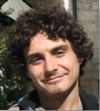 Alexander von Humboldt Research Fellowship
Alexander von Humboldt Research Fellowship
Applied modal logic
Postdoc, Delft University of Technology
Roberto Ciuni is a postdoctoral researcher in applied modal logic at the Delft University of Technology. He was awarded a Ph.D. in Philosophy at the University of Florence (2005-2008). His PhD dissertation deals with the relation of existential dependence in temporal contexts. During his PhD he spent a stay of one year and a half at the LOGOS Group of the University of Barcelona. He also undertook research on standard languages for branching time structures.
Dr Ciuni’s current focus is on stit logics, deontic logics, ATL and branching time logics in general, and in the way they can be applied for developing an accurate formal framework for the notion of responsibility and for the phenomenon of technology-induced change of possibilities.
Dr Roberto Ciuni is taking up his Humboldt Research Fellowship at Ruhr-University Bochum starting from 1st October 2011 until 30th September 2013. During his stay he will continue his research in co-operation with Prof. Dr Heinrich Wansing and will be involved, among other things, in the research seminar “Branching-time structures” (4th till 8th October 2011) as well as the international conference “Trends in Logic” at Ruhr-University Bochum (June 2012).
Juni - Juli 2013; Mai - Juli 2012
Host: Prof. Dr. Albert Newen
 Kenneth Aizawa is the Charles T. Beaird Professor of Philosophy at Centenary College of Louisiana. He is the author of The Systematicity Arguments (2003) and (with Frederick Adams) The Bounds of Cognition. He has published papers on connectionism, extended cognition, and the history of cognitive science.
Kenneth Aizawa is the Charles T. Beaird Professor of Philosophy at Centenary College of Louisiana. He is the author of The Systematicity Arguments (2003) and (with Frederick Adams) The Bounds of Cognition. He has published papers on connectionism, extended cognition, and the history of cognitive science.
Centenary College of Louisiana
June - July 2012
September 2010 - June 2011
June - July 2013
Host: Prof. Dr. Albert Newen
 Alexander von Humboldt Research Award 2010
Alexander von Humboldt Research Award 2010
Animal Minds and Artificial Intelligence
Indiana University Bloomington
Alexander von Humboldt-Laureate 2010
Colin Allen is Professor of Philosophy at the University of Bloomington, Indiana. He is well-known internationally for his outstanding research in animal mind, philosophy of biology and artificial intelligence. It is characteristic for his work that he combines philosophical analysis with empirical cognitive sciences, especially relying on recent developments in animal research and robotics. Important books are entitled "Species of the Mind", "The Cognitive Animal" and "Moral Machines".
June 2013
Host: Prof. Dr. Albert Newen
 Julia Langkau is a postdoctoral researcher at the University of Zurich, Switzerland. She was a member of the Arché Philosophical Research Centre and received her PhD from the University of St Andrews, Scotland, in 2012. Her thesis is titled “Appealing to Intuitions” and is concerned with thought experiments, knowledge, and intuitions. Her current research project is on the knowledge we can gain from fiction and on questions concerning the role of emotions in fiction. Her main research interests are in epistemology, the methodology of philosophy, and the nature of intuitions and emotions.
Julia Langkau is a postdoctoral researcher at the University of Zurich, Switzerland. She was a member of the Arché Philosophical Research Centre and received her PhD from the University of St Andrews, Scotland, in 2012. Her thesis is titled “Appealing to Intuitions” and is concerned with thought experiments, knowledge, and intuitions. Her current research project is on the knowledge we can gain from fiction and on questions concerning the role of emotions in fiction. Her main research interests are in epistemology, the methodology of philosophy, and the nature of intuitions and emotions.
Juni 2013
Host: Prof. Dr. Albert Newen
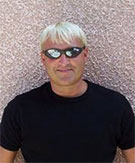 Mark Rowlands is Professor of Philosophy at the University of Miami. His research interests include the philosophy of mind/cognitive science and moral philosophy. In addition to numerous journal articles, he is the author of fifteen books, translated into more than twenty languages, including The Body in Mind (Cambridge, 1999), The Nature of Consciousness (Cambridge, 2001), Body Language (MIT, 2006), The New Science of the Mind (MIT, 2010), and Can Animals Be Moral? (Oxford, 2012).
Mark Rowlands is Professor of Philosophy at the University of Miami. His research interests include the philosophy of mind/cognitive science and moral philosophy. In addition to numerous journal articles, he is the author of fifteen books, translated into more than twenty languages, including The Body in Mind (Cambridge, 1999), The Nature of Consciousness (Cambridge, 2001), Body Language (MIT, 2006), The New Science of the Mind (MIT, 2010), and Can Animals Be Moral? (Oxford, 2012).
April 2012 - March 2013
Host: Prof. Dr. Markus Werning
 Erica Cosentino is currently a Postdoctoral Research Fellow at the University of Calabria. She received her Ph.D. in Philosophy of Mind and Language from the University of Palermo in 2008.
Erica Cosentino is currently a Postdoctoral Research Fellow at the University of Calabria. She received her Ph.D. in Philosophy of Mind and Language from the University of Palermo in 2008.
Her research interests primarily concern the following issues: the evolution of language from a pragmatic perspective, the role of episodic memory and planning (mental time travel) on the emergence of a temporally extended self, the relation between mental time travel and other cognitive abilities such as mindreading and navigation in space. Her main publications on these topics comprise a monograph, “Mind’s time. Language, evolution and personal identity” (in Italian, Quodlibet 2008) and several articles, including those recently published in Consciousness and Cognition and Philosophical Psychology.
At the moment, she is particularly interested in discourse processes, storytelling and the role of mental simulation in language.
January - March 2013
Host: Prof. Dr. Albert Newen
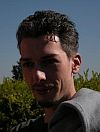 Junior Fellow: Dr. Marco Fenici, Universität Siena
Junior Fellow: Dr. Marco Fenici, Universität Siena
Marco Fenici obtained his PhD in Philosophy and Cognitive Sciences at the University of Siena in 2011 by defending a dissertation about children’s acquisition of the concept of belief. Before that, he graduated in Logic at the University of Florence in 2005 with a dissertation on epistemic logics and the problem of logical omniscience. His research interests concern the acquisition of concepts, in general, and, more specifically, of mental concepts. He investigates them mostly by referring to developmental studies about social cognition and language acquisition. Beside that, he is also interested in the epistemology of propositional attitudes, the philosophy of psychology, the concept of representation in cognitive sciences, and animal cognition. During his studies, he has been visiting student at the Technische Universitaet (Dresden), at the Institute of Cognitive Sciences and Technologies (Rome), and at the Department of Linguistics of the University of Massachusetts (Amherst).
Februar 2013
Host: Prof. Dr. Albert Newen
 Petra Vetter is currently a post-doctoral research fellow at the Institute of Neuroscience and Psychology at University of Glasgow (Scotland). Before that, she received a PhD at the Institute of Cognitive Neuroscience at University College London. She is interested in how the visual system integrates contextual information and how this information influences our visual perception. In particular, she focuses on the processes in early visual cortex and how they are affected by multisensory, emotional and higher cognitive factors. In her experimental work, she employs fMRI (including retinotopic mapping and brain reading approaches), TMS and psychophysics in humans. She has an active interest in Philosophy of Mind and has been organising an interdisciplinary seminar series with the Philosophy department at the University of Glasgow.
Petra Vetter is currently a post-doctoral research fellow at the Institute of Neuroscience and Psychology at University of Glasgow (Scotland). Before that, she received a PhD at the Institute of Cognitive Neuroscience at University College London. She is interested in how the visual system integrates contextual information and how this information influences our visual perception. In particular, she focuses on the processes in early visual cortex and how they are affected by multisensory, emotional and higher cognitive factors. In her experimental work, she employs fMRI (including retinotopic mapping and brain reading approaches), TMS and psychophysics in humans. She has an active interest in Philosophy of Mind and has been organising an interdisciplinary seminar series with the Philosophy department at the University of Glasgow.
July 2012 - August 2012.
Host: Prof. Heinrich Wansing
 Alexander von Humboldt Research Fellowship
Alexander von Humboldt Research Fellowship
Prof. Dr hab. Tomasz Skura from the University Zielona Góra (Poland) is taking up his Humboldt Research Fellowship at Ruhr-University Bochum starting from 1 July 2012 until 31 August 2012.
Specific scientific area:
Prof. Skura is a logician. His teacher and supervisor of doctoral dissertation at the Catholic University of Lublin in the years 94-1988 was Professor Ludwik Borkowski,who took over the tradition of the famous Lvov-Warsaw School, especially the belief that scientific work is based on freedom and independence.
June - July 2012
Host: Prof. Dr. Albert Newen
 The consideration and creation of meaning through social interaction is the aspect of intersubjectivity referred to as participatory sense-making. Those who study participatory sense-making have focused on face-to-face, didactic encounters and have offered contradictory views on whether meaning can arise out of an interaction during which a third-person or observational stance is taken by one of the participants. While at the Center for Mind, Brain and Cognitive Evolution, Rebecca intends to pursue research which will demonstrate that a third-person or observational stance does offer a sufficient level of interaction for the occurrence of participatory sense-making. Her research is an outgrowth of material originally covered in her PhD dissertation, “Born Again: Natality, Normativity and Narrative in Hannah Arendt’s The Human Condition” which she wrote under the supervision of Shaun Gallagher.
The consideration and creation of meaning through social interaction is the aspect of intersubjectivity referred to as participatory sense-making. Those who study participatory sense-making have focused on face-to-face, didactic encounters and have offered contradictory views on whether meaning can arise out of an interaction during which a third-person or observational stance is taken by one of the participants. While at the Center for Mind, Brain and Cognitive Evolution, Rebecca intends to pursue research which will demonstrate that a third-person or observational stance does offer a sufficient level of interaction for the occurrence of participatory sense-making. Her research is an outgrowth of material originally covered in her PhD dissertation, “Born Again: Natality, Normativity and Narrative in Hannah Arendt’s The Human Condition” which she wrote under the supervision of Shaun Gallagher.
May - July 2012
Host: Prof. Dr. Albert Newen
 Kenneth Aizawa is the Charles T. Beaird Professor of Philosophy at Centenary College of Louisiana. He is the author of The Systematicity Arguments (2003) and (with Frederick Adams) The Bounds of Cognition. He has published papers on connectionism, extended cognition, and the history of cognitive science
Kenneth Aizawa is the Charles T. Beaird Professor of Philosophy at Centenary College of Louisiana. He is the author of The Systematicity Arguments (2003) and (with Frederick Adams) The Bounds of Cognition. He has published papers on connectionism, extended cognition, and the history of cognitive science
April - July 2012
Host: Prof. Dr. Albert Newen
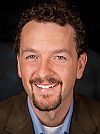 Dr. Cameron Buckner received a Ph.D. in Philosophy from Indiana University, Bloomington in 2011. His primary research area is the philosophy of cognitive science, and he also has a background in artificial intelligence. His dissertation is on the structure of cognition and the nature of mental content. He has published in the areas of philosophy of mind, computer science, and psychology. He is co-founder of the Indiana Philosophy Ontology Project, which began in 2005 to serve the information needs of the Stanford Encyclopedia of Philosophy by integrating developments from information extraction, social computing, knowledge representation, and logic programming.
Dr. Cameron Buckner received a Ph.D. in Philosophy from Indiana University, Bloomington in 2011. His primary research area is the philosophy of cognitive science, and he also has a background in artificial intelligence. His dissertation is on the structure of cognition and the nature of mental content. He has published in the areas of philosophy of mind, computer science, and psychology. He is co-founder of the Indiana Philosophy Ontology Project, which began in 2005 to serve the information needs of the Stanford Encyclopedia of Philosophy by integrating developments from information extraction, social computing, knowledge representation, and logic programming.
May 2012
Host: Prof. Dr. Albert Newen
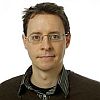 Thor Grünbaum is currently an assistant professor, Section for Philosophy, University of Copenhagen. Before that, he was a postdoctoral research fellow at Clare Hall, University of Cambridge and at Danish National Research Foundation's Center for Subjectivity Research, University of Copenhagen. His main research interests are in philosophy of action, mind, and psychology. In addition to articles in these areas, he has published a number of articles on aesthetics and the theory of narratives. For more information on his research and a list of publications, visit his homepage.
Thor Grünbaum is currently an assistant professor, Section for Philosophy, University of Copenhagen. Before that, he was a postdoctoral research fellow at Clare Hall, University of Cambridge and at Danish National Research Foundation's Center for Subjectivity Research, University of Copenhagen. His main research interests are in philosophy of action, mind, and psychology. In addition to articles in these areas, he has published a number of articles on aesthetics and the theory of narratives. For more information on his research and a list of publications, visit his homepage.
March - May 2012
Host: Prof. Dr. Heinrich Wansing
 Specific scientific area: Logic and Quantum Computation
Specific scientific area: Logic and Quantum Computation
Research profile:
Research Interests: Logical--algebraic structures of quantum mechanics and quantum computation; Unsharp quantum logics; Fuzzy logics and multi--valued logics; Epistemic logics; Theoretical computer science
Information regarding research career:
President of the International Quantum Structures Association (IQSA)
Important publications:
January - March 2012
Host: Prof. Dr. Heinrich Wansing
 Mariana Matulovic is a doctoral student at the State University of
Mariana Matulovic is a doctoral student at the State University of
Campinas (UNICAMP/SP), Institute of Philosophy and Human Sciences with
specialization in Logic, supervised by Prof. Walter Carnielli. She
graduated in Mathematics, and has a Master in Philosophy/Logic with a
thesis in Non-Classical Logics (Modulated Logics). Her work focuses
currently on a deep investigation of a new method of algebraic proof
developed by Professor Carnielli. During her stay in the
Ruhr-Universität Bochum, Ms. Matulovic offered three presentations
regarding the method of proof by polynomials for general logic systems
(encompassing deterministic and non-deterministic many-valued logics,
with particular applications to paraconsistent logics, a topic of her
PhD thesis to be completed in 2013).
January 2012
Host: Prof. Dr. Heinrich Wansing
 François Schwarzentruber is assistant professor at École Normale Supérieure de Cachan (Brittany extension). He obtained a PhD in Computer Science and Artificial Intelligence at University of Toulouse 3 (France) in 2010 by defending a dissertation about modal logics to capture epistemic and agency reasoning. During his PhD he developed a spatial grounded epistemic modal logic. He focused on complexity results about stit logics fragments and how to use it to model counterfactual emotions.
François Schwarzentruber is assistant professor at École Normale Supérieure de Cachan (Brittany extension). He obtained a PhD in Computer Science and Artificial Intelligence at University of Toulouse 3 (France) in 2010 by defending a dissertation about modal logics to capture epistemic and agency reasoning. During his PhD he developed a spatial grounded epistemic modal logic. He focused on complexity results about stit logics fragments and how to use it to model counterfactual emotions.
Now, François Schwarzentruber's current focus is still on stit logics and also on dynamic epistemic logics axiomatizations and computational issues. He is also interested in developing pedagogical softwares for teaching logic.
September 2011 - July 2012
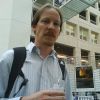 Visiting Professor for the academic year 2011/12
Visiting Professor for the academic year 2011/12
Philosophy of Language and Mind
Lecturer in Philosophy
Universidad Nacional Autónoma de México (UNAM)
Martin Fricke is philosophy researcher at the National Autonomous University of Mexico (Instituto de Investigaciones Filosóficas and Centro Peninsular en Humanidades y Ciencias Sociales). Before going to Mexico, he studied at Ludwig-Maximilians-Universität München and in Oxford, where he obtained his BPhil and DPhil degrees – the latter with a thesis about self-consciousness.
His research interests lie in the philosophy of mind and epistemology. A special focus of his current research is the problem of first person authority: How is authoritative knowledge of one’s own mind possible? Why do we not seem to rely on evidence in this type of knowledge? Why is it less prone to error than knowledge of other people’s minds? In a couple of recent publications he has examined different approaches to this problem and defended an Evans-inspired account of the access we have to our own minds.
His publications include “Solidity and Impediment” (with Paul Snowdon), Analysis 63 (2003); “Kant’s Four Notions of Freedom”, Hekmat Va Falsafeh 1 (2005); “Davidson y la autoridad de la primera persona”, Diánoia 52 (2007); “Henrich on Kant’s Transcendental Deduction of the Categories”, in Valerio Rohden et al. (eds.): Recht und Frieden in der Philosophie Kants, Berlin: De Gruyter, 2008; “Teorías constitutivas de la autoridad de la primera persona: Wright y Heal”, Ludus Vitalis 16 (2008); “Evans and First Person Authority”, Abstracta 5 (2009); “Autoconciencia e identidad personal”, Península 5 (2010); “¿Es real el espacio? Perspectivas modernas: Newton, Leibniz y Kant”, in Rosario Gómez et al. (eds.): Diálogos sobre los espacios, Mérida: UNAM, (forthcoming); and “Racionalidad y autoconocimiento en Shoemaker”, in Pedro Stepanenko (ed.): La primera persona y sus percepciones, Mérida: UNAM (forthcoming).
October 2011 - March 2012
Host: Prof. Dr. Albert Newen
 Dipartimento di Filosofia
Dipartimento di Filosofia
Università degli Studi di Milano
From October to December 2011, I'm going to be research fellow at the Bochum Center for Mind, Brain and Cognitive Evolution, where I'll join Prof. Newen's research group on social cognition. In May 2011 I got a PhD in philosophy from the University of Milan. During my PhD, I was a visiting graduate student at the Rutgers Center for Cognitive Science and at the Institut Jean Nicod.
My research lies at the intersection between philosophy of mind and cognitive science, with a special focus on social cognition. I've authored and co-authored papers on mental simulation, disgust attribution, and moral judgment in autism. I am currently working on mirror mechanisms, phenomenal mindreading, and the embodied character of emotions.
November / Dezember 2011
Host: Prof. Heinrich Wansing
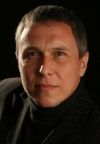 Department of Cognitive Science
Department of Cognitive Science
University of Lodz
Prof. Piotr Lukowski is the Head of the Department of Cognitive Science at the Institute of Psychology, University of Lodz. He was visiting scholar in the Imperial College of London (1993), at the University of Warwick in Coventry (1993), the Japan Advanced Institute of Science and Technology (JAIST) (1995-97, Japan), and the Université de Nantes (1998-1999, France). In 1993-94 and between 1998 and 2007, Piotr Lukowski was the editor of the journal ''Bulletin of the Section of Logic''.
Oktober - November 2011
Prof. Dr. Markus Werning
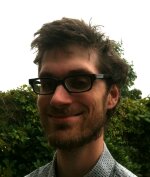 Emar Maier received his Ph.D. in Philosophy from the Radboud University Nijmegen in 2006 with a thesis on the semantics of de re and de se attitude ascriptions. After working as postdoctoral researcher in Linguistics (Nijmegen) and Philosophy (ILLC/Amsterdam), he is now PI of an ERC Starting Grant project on the grey area between direct and indirect reported speech (combining formal semantics and empirical investigation of child language, sign language, and ancient Greek). His research interests include: presuppositions and dynamic semantics; reported speech and quotation; indexicals and proper names; and attitude reports. His visit to the Bochum Philosophy of Language department/Mercator Research Group will provide an opportunity for mutual exchange of ideas about philosophical and empirical issues in the study of meaning generally, and about the nature of linguistic self-reference through quotation in particular.
Emar Maier received his Ph.D. in Philosophy from the Radboud University Nijmegen in 2006 with a thesis on the semantics of de re and de se attitude ascriptions. After working as postdoctoral researcher in Linguistics (Nijmegen) and Philosophy (ILLC/Amsterdam), he is now PI of an ERC Starting Grant project on the grey area between direct and indirect reported speech (combining formal semantics and empirical investigation of child language, sign language, and ancient Greek). His research interests include: presuppositions and dynamic semantics; reported speech and quotation; indexicals and proper names; and attitude reports. His visit to the Bochum Philosophy of Language department/Mercator Research Group will provide an opportunity for mutual exchange of ideas about philosophical and empirical issues in the study of meaning generally, and about the nature of linguistic self-reference through quotation in particular.
Philosophy of Language and Cognition
October - December 2011
Host: Prof. Dr. Markus Werning
 Junior Fellow: Dr. Marco Fenici, Universität Siena
Junior Fellow: Dr. Marco Fenici, Universität Siena
Marco Fenici obtained his PhD in Philosophy and Cognitive Sciences at the University of Siena in 2011 by defending a dissertation about children’s acquisition of the concept of belief. Before that, he graduated in Logic at the University of Florence in 2005 with a dissertation on epistemic logics and the problem of logical omniscience. His research interests concern the acquisition of concepts, in general, and, more specifically, of mental concepts. He investigates them mostly by referring to developmental studies about social cognition and language acquisition. Beside that, he is also interested in the epistemology of propositional attitudes, the philosophy of psychology, the concept of representation in cognitive sciences, and animal cognition. During his studies, he has been visiting student at the Technische Universitaet (Dresden), at the Institute of Cognitive Sciences and Technologies (Rome), and at the Department of Linguistics of the University of Massachusetts (Amherst).
October / November 2011
Host: Prof. Dr. Markus Werning
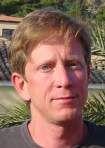 Department of Philosophy
Department of Philosophy
University of Cincinnati
His publications are in the areas of Philosophy of Language, Philosophy of Mind, and Philosophical Logic.
His recent book is the following: "Words and Images: An Essay on the Origin of Ideas", C. Gauker, Oxford University Press, 2011.
(April - September 2011)
Host: Prof. Dr. Albert Newen
(September - Oktober 2011)
Host: Prof. Dr. Albert Newen
 Professor Coltheart is one of Australia’s most renowned and distinguished cognitive scientists. He was born in Frankston, near Melbourne. In 1957, he enrolled at the University of Sydney where he completed BA, MA and PhD degrees. Over the last 40 years, he has had a highly successful academic career – mainly in the areas of cognitive neuropsychology and cognitive neuropsychiatry – with an unparalleled range and volume of publications, achievements and honours.Macquarie University
Professor Coltheart is one of Australia’s most renowned and distinguished cognitive scientists. He was born in Frankston, near Melbourne. In 1957, he enrolled at the University of Sydney where he completed BA, MA and PhD degrees. Over the last 40 years, he has had a highly successful academic career – mainly in the areas of cognitive neuropsychology and cognitive neuropsychiatry – with an unparalleled range and volume of publications, achievements and honours.Macquarie University